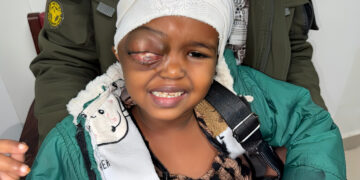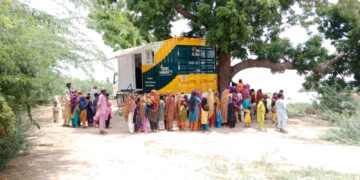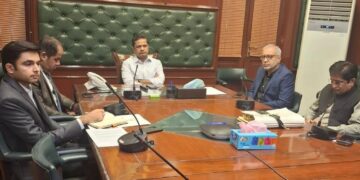Pakistan: Pakistan is the seventh largest country in the world in terms of population and according to the official data of the 2023 census, the total population of Pakistan is more than 241 million. Family planning can now be used for population control only by married couples voluntarily and no citizen is forced to use family planning. Now any man or woman can decide to improve their family by using family planning voluntarily. To bring family planning to urban and rural women, UNFPA is working with
the Government of Pakistan in collaboration with government departments, civil society and the private sector across the country as the family planning services accessibility to every citizen can be made possible and by this process the pressure on increasing population and the country’s economy and resources can be reduced.
A large part of the population of Pakistan still lives in rural areas where there is a lack of health facilities and family planning facilities due to which the women in remote and rural areas not only have low family planning awareness but also outdated rituals. In the eyes of some families, family planning is not considered good. Without an adequate gap in childbirth, the women’s health is affected to a great extent and weak children are born. Due to poverty in rural areas, parents cannot prioritize their children’s education, food and health, thus reducing such women’s capabilities to housework and child care. More than 46% of the population of Sindh province still lives in rural areas, villages and remote areas, mostly engaged in agriculture. Due to less access to family planning and outdated customs, the growth rate of population has increased as compared to the past. In two districts of Sindh, Matiari and Qamar Shahdadkot, a project has been started for access to family planning known as Sehatmand khandan (healthy family) by UNFPA with the collaboration of the provisional Department of Health, Population Welfare Department and others. With the support of the private sector and civil society, family planning facilities have been established here in one district hospital, two taluk hospitals and three rural health centers in Matiari district where the training to government doctors, nurses and staff is provided. Similarly, same family planning facilities have been provided in one district headquarters hospital, three taluk hospitals and three rural health centers in District Qambar Shahdadkot as well.
Access to family planning has been made possible among the people through the Healthy Family Project in Matiari and Qambar Shahdadkot on behalf of UNFPA in collaboration with the departments of the Government of Sindh. In these public hospitals, doctors and nursing staff are providing information about all the modern and safe methods of family planning to couples who want to voluntarily do family planning. They can decide about the bright future of their family by taking a break in the motherhood of children, which is very important for the health of children and women. Women visiting these centers are educated by expert female doctors about all methods of family planning and their benefits in terms of medical science. When we look at the overall population of Pakistan, it is found that the growth ratio of our population increased in 2023 as compared to 2017 which is not only harmful for women but also not good for our economy and resources. In such a situation when the country is facing economic problems, we can avoid and control the population by providing access to the facility of family planning and by creating awareness in the society for voluntary use of family planning methods. Every year in Pakistan, due to lack of maternity facilities ,lack of awareness or lack of adequate food, pregnant women die during childbirth. Similarly, newborn babies also died due to medical complications and weakness. In order to face this challenge, the Ministry of Health of the Government of Sindh and the Department of Population Welfare are working in collaboration with the international organization UNFPA. Through family planning, not only the number of children and mothers who die during childbirth can be reduced, but also the health of women can be improved. If access to family planning facilities is easy for every married couple, newly married couples can improve their lives with the help of this process. This process will reduce the cost of treatment of newborn babies and mothers in public hospitals and be helpful to save expenditure. It is very important for women to be healthy for the economic improvement of the society because healthy women will be able to work or do business along with their housework and child care, which will bring prosperity to such families. It will reduce poverty and the growing pressure on the country’s resources and economy as well which is very important for the economic development of the country.
Written by:
Ali Asghar Arbab





















